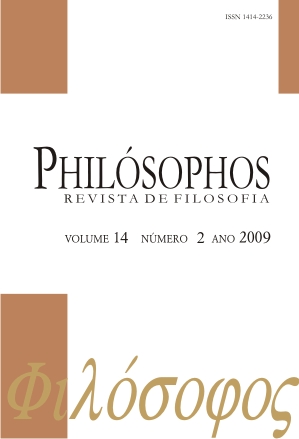THE INTENTIONALITY OF PERCEPTION AND OF ACTION IN THE YOUNG HEGEL
DOI:
https://doi.org/10.5216/phi.v14i2.10157Keywords:
Hegel, Intentionality, Subjectivity.Abstract
In the first writings of his Jena period, Hegel defends the conception of an original identity through which subjectivity is "suspended". The present article aims to expound this conception as a contribution to the theory of intentionality which focusses on the unity of conceptual and sensuous (or motivational) elements as a condition of the intentionality of perception and action. In a first step, it is argued that in his early writings, by "philosophy of subjectivity" Hegel understands positions which separate the conceptual and the sensuous elements of perception and action, conceiving at the same time the subject as a distanced controller of sensibility. Thus, the hegelian critique of the philosophy of subjectivity is directed against such a conception of intentionality and its subject. In a second step, the hegelian alternative to this picture is exposed - the conception of an indissoluble unity of thinking and sensibility as being fundamental to perception and action. Finally, the picture of self-consciousness which arises in the Phenomenology of Spirit is analyzed as an implication of the conception of intentionality adopted in the earlier writings.Downloads
Downloads
Published
How to Cite
Issue
Section
License
Authors who publish in this journal agree to the following terms:
- Authors retain copyright and grant the journal right of first publication, with the work simultaneously licensed under a Creative Commons Attribution License that allows others to share the work with an acknowledgement of the work's authorship and initial publication in this journal.
- Authors are authorized to enter into separate, additional contractual arrangements for the non-exclusive distribution of the journal's published version of the work (e.g., publishing in an institutional repository or as a book chapter), with an acknowledgement of its authorship and initial publication in this journal.















